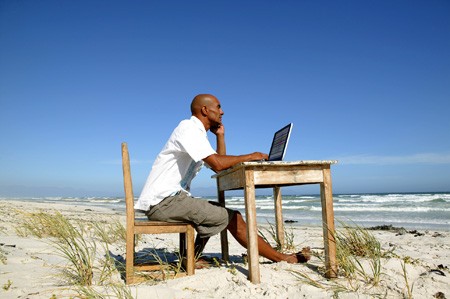‘Bleisure’ travel claims in ATO sights, experts warn Travellers who mix business and pleasure will face increased scrutiny as the Tax Office cracks down on work-related expenses.
. Business travellers who mix work with pleasure will face increased scrutiny from the ATO this tax time as part of its crackdown on work-related expenses, industry experts warn. The warning comes as fresh data shows Australians' business trips were twice as long as the rest of the world, averaging six nights compared to the global average of 3.5, according to Flight Centre’s Corporate Traveller division. Corporate Traveller said those blending business trips with personal leisure time, dubbed “bleisure” travellers, would continue to rise due to reduced flight costs and "strong travel trends". "This tax season, business travellers should take extra care to avoid scrutiny,” Global managing director Tom Walley said. In May, the ATO said work-related expenses would be one of three focus areas this tax time along with rental deductions and a failure to include all income sources in lodgments. It said over 8 million people made a work-related claim last year and urged taxpayers to follow “three golden rules”, including only claiming expenses if they spent money themselves and were not reimbursed, the expense was directly related to income and there was a record of the expense. Moneywise Global general manager John Tuohy advised travellers to delay filing their taxes until they were fully prepared. “There are over 14,000 pages of tax law in Australia, meaning there are lots of incentives and terms and conditions, and with the ATO focusing this year on work-related expenses, it’s particularly important to take that time to get it right, and to understand the nuances to avoid audit triggers.” “So don’t rush it unless you know your tax is relatively simple and you’re expecting a refund,” he said, with the deadline for returns on 31 October, or mid-May if taxpayers registered with a tax agent. Corporate Traveller’s flight bookings data found January, September and July were the most popular months for extended business trips, with travellers averaging 7.2, 6.5 and 6.2 nights away, respectively. Key tips for “bleisure” travellers claiming work-related deductions included maintaining detailed travel diaries of work expenses and avoiding “double dipping” on claims. “Travellers should keep a travel and expense diary. Often, appropriate annotations in your calendar tool noting dates, times, durations and places of work-related activities will suffice as a 'travel diary' for tax purposes and will substantiate deductions for specific and associated expenses,” Tuohy said. If leisure travel was “incidental” to a business trip, more expenses such as accommodation and meals would be allowable as deductions. Legitimate client entertainment expenses and weekend accommodation could also be deductible when business extended from Friday to Monday, he said, however paying to take family on trips or extending travel for leisure before or after work commitments would not. “Don't be tempted to claim these on your tax,” he said. Tuohy said day travel was also not an allowable expense. “Public transport, parking, tolls, taxi/rideshare, flights, meals and other incidental expenses that aren’t reimbursed by your employer will only be tax deductible when they are associated with an overnight work trip.”
Christine Chen |
Latest News


